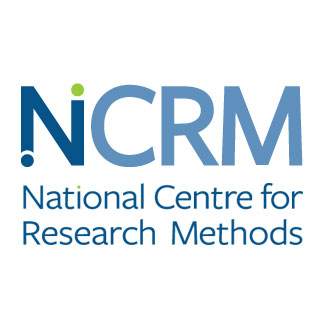
- This event has passed.
Doing Social Science Research in Healthcare Settings
19th July 2018 @ 8:00 am - 20th July 2018 @ 5:00 pm
£100
| Organised by | King’s College London |
| Presenter | Dr Nina Fudge, Research Associate, Queen Mary University of London Professor Christopher McKevitt, Professor of Social Sciences & Health, Division of Health & Social Care Research, King’s College London Dr Caroline Pearce, Research Associate in Social Science, King’s College London Dr David Wyatt, Research Fellow in Social Science, Division of Health & Social Care Research, King’s College London |
| Date | 19/07/2018 – 20/07/2018 |
| Venue | • School of Population Health & Environmental Sciences, Faculty of Life Sciences & Medicine King’s College London 6th Floor (Room 6.07) Addison House, Guy’s Campus, London |
| Map | View in Google Maps (SE1 1UL) |
| Contact | Dr David Wyatt [email protected] |
| Description |
FULL DESCRIPTION: The contribution that social science research can make to health science and services is well established. However, conducting social science research in health care settings presents a number of practical, social and epistemological challenges. Health research requires working with clinical organisations and policy makers, and a range of stakeholders such as clinicians, managers and service users, who work on different time frames and have different priorities. Successful research that will make an impact needs to engage key stakeholders in the formulation of the questions, conduct of the research and knowledge transfer. This two day course is intended for PhD students and others at the start of social science based health research and will address practical as well as epistemological questions researchers face working in health care settings. Indicative course content The course entails a number of themed seminars with presentations by experts in the field and time for discussion and shared learning. These sessions include the following. (The final programme will be confirmed 2 weeks before the summer school.)
Using theory in applied health research What is the value of social theory in applied health research? How can it be used? In this session participants will explore these questions though group discussion of their own experiences, examination of selected examples from the literature and consideration of practical strategies to use theory in social science research in health settings. Note: this session requires advanced reading. Reflexivity Researcher reflexivity requires consideration of the role of the researcher and the impact of the research process on the findings. This session aims to consider how the field of study is filtered through the interpretive lens of the researcher, the researcher’s effect on the phenomena and the field’s effect on the researcher. Using our research experience and group discussion we will explore key issues such as ‘studying up’ and insider / outsider relationships. Note: this session requires advanced reading. What do funders want from social science research in health? Social science research is supported by funders of medical/health research such as the National Institute of Health Research (NIHR) and the Medical Research Council, but what do they expect to see in applications from social scientists or that include social science components in mixed methods studies. How is quality assessed? This session will address these questions. Ethics and governance processes. Social science professional bodies have developed their own approaches to ethical review but research in health care settings usually requires approval through the National Research Ethics Service, and additionally permission from local NHS organisations. This session aims to demystify these processes, and to examine the particular case of social science studies which may fit less well with the expectations of these bodies. We will also consider a cautionary tale and learn from this real life experience. Communicating social science health research to different audiences This session will take a critical look at current concepts of “impact” and “translation” with regards to social science health research findings. We will identify the different audiences for our research, including other researchers, commissioners, policy makers, service users and practitioners and reflect on how we might adapt our communications to address their concerns and contexts. This will be an interactive session; we will look at a recent social science health research report and work together to devise and appropriate communication and dissemination strategy for different audiences. Objectives
Learning outcomes Students will:
|
| Level | Advanced (specialised prior knowledge) |
| Cost | The summer school costs £100 to attend but a limited number of full bursaries are available to cover these costs. Students wishing to take part in this course should fill in the attached form and return to Dr David Wyatt [email protected] by 5pm 6 July 2018. If you have any enquiries about course content, please contact Dr David Wyatt [email protected]. Places are limited to 15 students.
PLEASE NOTE: Payment of the fee is not required until you have been accepted onto the course (and you have not requested or been awarded a bursary.) |
| Website and registration | |
| Region | Greater London |
| Keywords | Evaluation Research, Theory of change methods, Quality in Qualitative Research, Reflexivity, Qualitative Data Handling and Data Analysis, Grounded Theory, Research Management and Impact, Research Ethics, Research Skills, Communication and Dissemination, Research Skills, Communication and Dissemination (other) |
| Related publications and presentations | Evaluation Research Theory of change methods Quality in Qualitative Research Reflexivity Qualitative Data Handling and Data Analysis Grounded Theory Research Management and Impact Research Ethics Research Skills, Communication and Dissemination Research Skills, Communication and Dissemination (other) |
